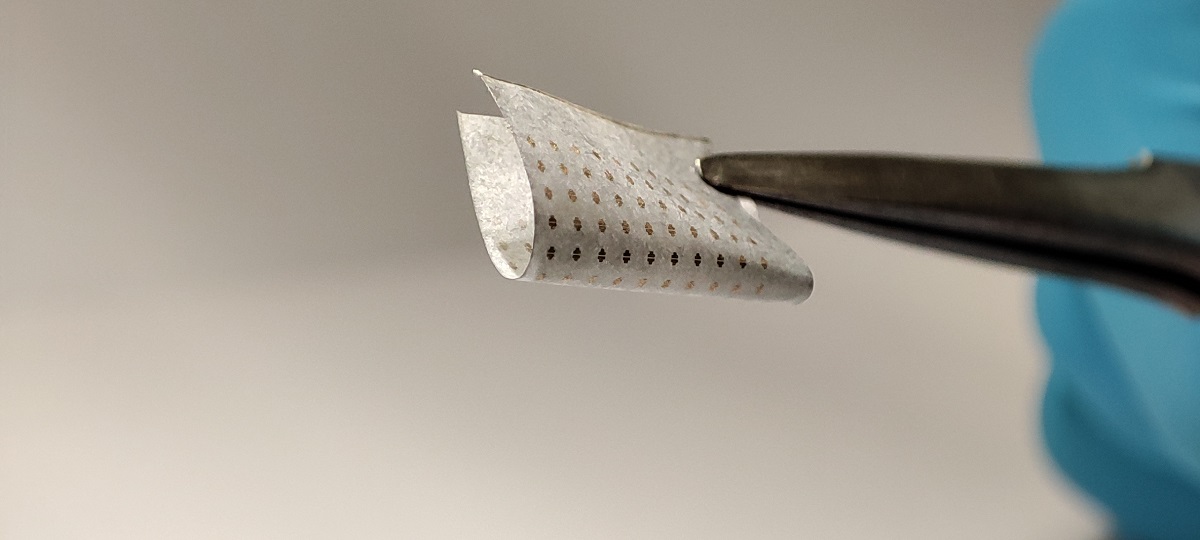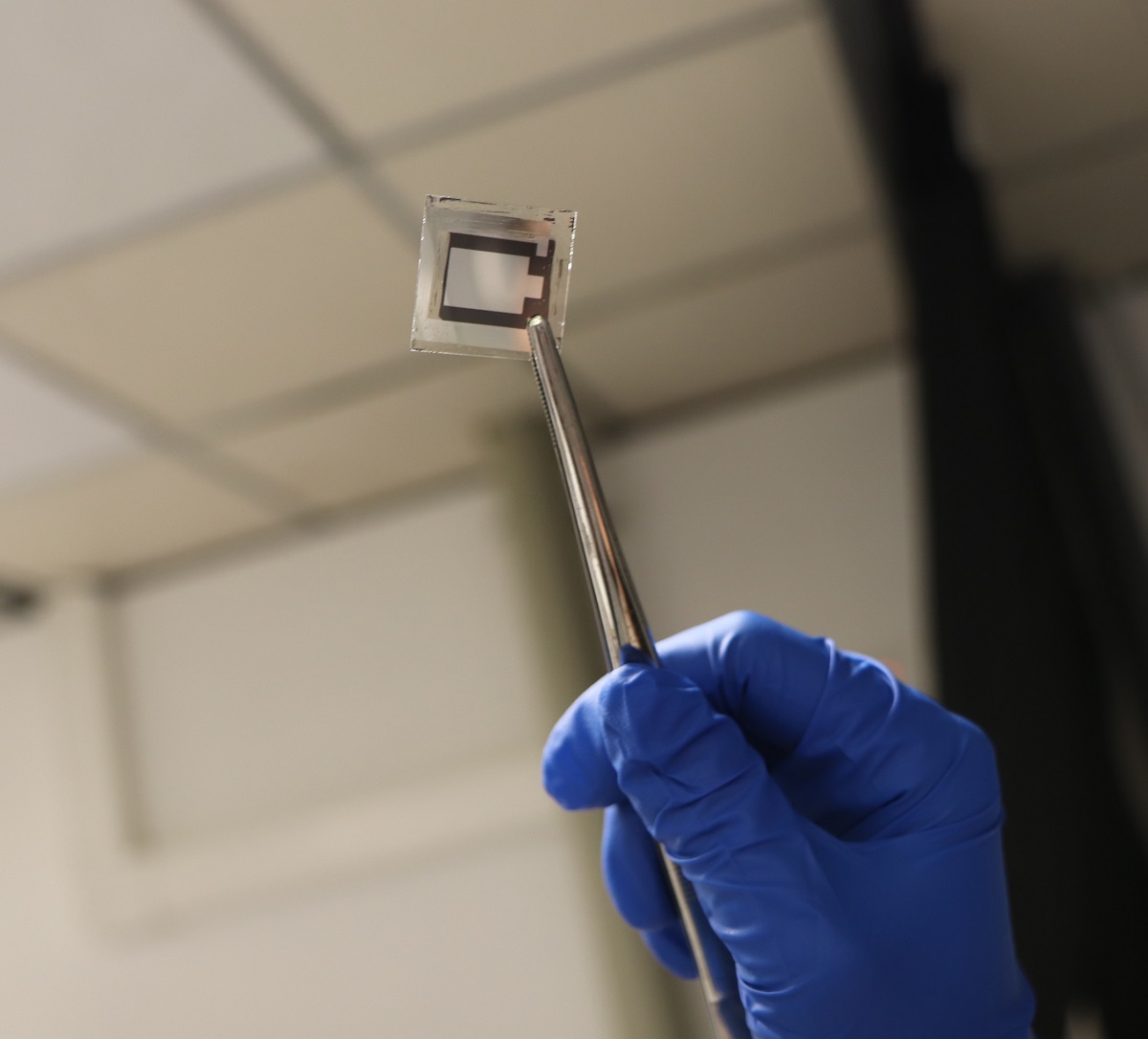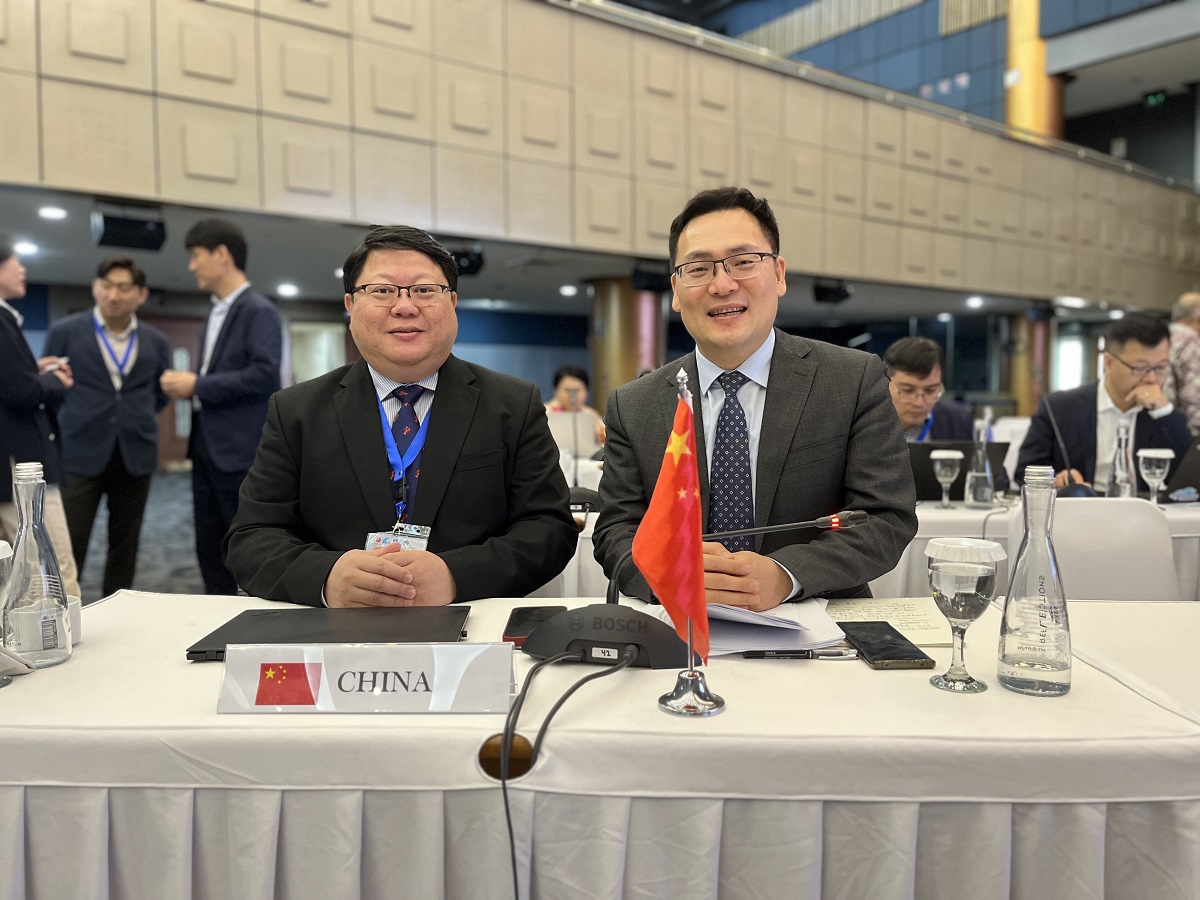Research Stories
Filter by category
Filter by year
Filter by year
- Alloys
- Analytical Chemistry
- Anti-Cancer
- Applied Physics
- Atomic, Molecular, and Optical Physics
- Chemical Biology
- Chemistry
- Clean Energy
- Condensed Matter
- DNA
- Energy
- Environmental Science or Biology
- Food Safety
- Kondo Cloud
- Materials
- Materials Chemistry
- Materials Science
- Mathematical Modelling
- Mathematics
- Nanomaterials
- Neural Networks
- Neutron Scattering
- Photosynthesis
- Photothermal Therapy
- Physics
- Quantum Materials
- Rankings
- Renewable Energy
- RNA
- Soft Matter & Biophysics
- Solar Cell
- Sound Wave
- Spectroscopy and Imaging
- Sustainability
- Theoretical and Computational Physics
- Transition Metal

State-of-the-art research into the precise delivery of cells using microrobots and the study of the medium-range structure of metallic glass developed at CityU have been honoured with two second-class awards in the Natural Science category at the Higher Education Outstanding Scientific Research Output Awards (Science and Technology) 2022 from the Ministry of Education.

With the support of the State Key Laboratory of Marine Pollution, a cross-institutional study involving the Education University of Hong Kong, the City University of Hong Kong, and the University of Hong Kong, has uncovered a promising new method for monitoring radionuclides in the ocean.

A team led by a physicist from City University of Hong Kong (CityU) recently developed a new quantum theory that explains the “light-induced phase” of matter and predicts its novel functionalities.

A collaborative team led by researchers from City University of Hong Kong (CityU) recently invented an innovative method for synthesizing high-quality, semiconducting nanomesh at a lower temperature and production cost than conventional methods. The findings will help enable the large-scale production of nanomesh for next-generation electronics.

Perovskite solar cells (PVSCs) are a promising alternative to traditional silicon-based solar cells because of their high power-conversion efficiency and low cost. However, one of the major challenges in their development has been achieving long-term stability.

The State Key Laboratory of Marine Pollution (SKLMP) of City University of Hong Kong (CityU) received approval from the UNESCO Intergovernmental Oceanographic Commission (IOC) Sub-Commission for the Western Pacific (WESTPAC) to establish the first UNESCO regional training and research Centre (the Coastal-COMMIT Centre, also known as the “Centre”) on coastal contaminant monitoring and marine innovative technologies in Hong Kong for the Western Pacific region.